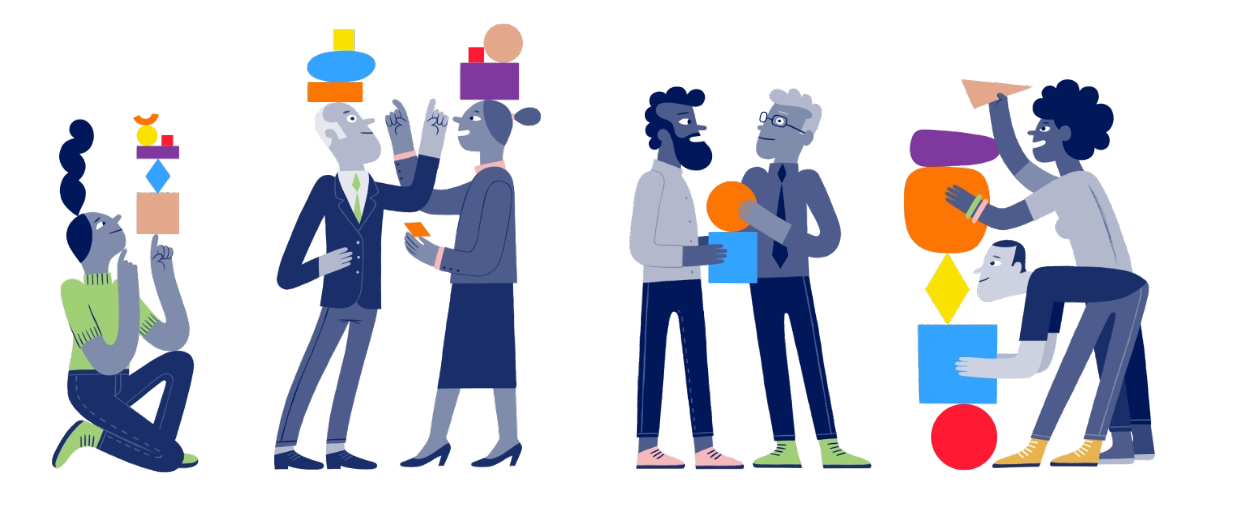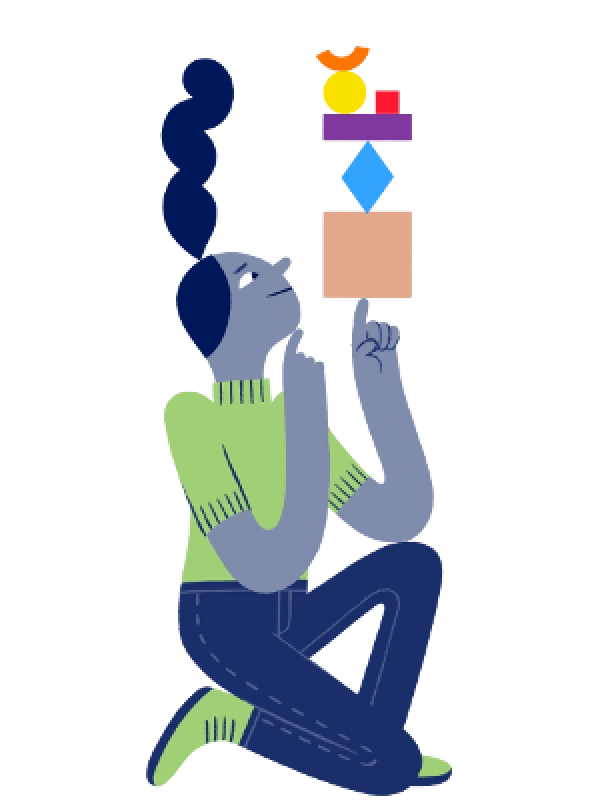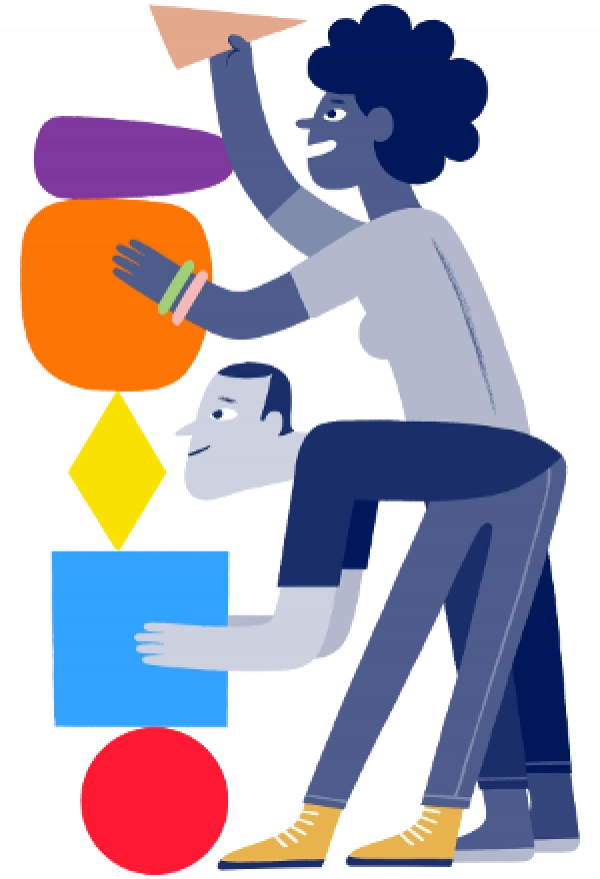Talking comes naturally to some people, while others prove to be good listeners. And yet, having engaged, effective interactions takes effort. Practicing PCM — short for Process Communication Model® — teaches us how to adapt what we say, do, and show to make the most of every conversation and situation. Along the way, we learn how to leverage our differences to make a difference at work, at home, and in the world.

A not-so-secret decoder
This is how it works
PCM is the premier tool for decoding human interactions. Practicing PCM teaches us how to observe our behaviors, which in turn lets us identify the communication strengths and preferences of ourselves and others. This understanding is based on differentiating six personality types that we all have within us: Thinker, Persister, Rebel, Promoter, Harmonizer, and Imaginer. A unique combination of the six types takes center stage in everyone. You can practice PCM in four steps:
01. Be aware of your personality
Understanding your preferences means knowing what energizes you and what ticks you off.

02. Recognize what other people do, say, and show
These observations inform you about people’s preferences and the best way to connect.

03. Adapt your communication style
In order to make a genuine connection that feels good for both of you.

04. Build happier relationships
With everyday interactions, at work and at home, every day.

The benefits
for you
Genuine connections
Observe others’ behaviors in order to make mutually satisfying connections.
Less stress, more substance
Overcome miscommunication that stands in the way of stronger relationships.
A better world
Let every conversation contribute to a world that leverages differences for the better
The benefits
for your organization
Inclusive yet individualized leadership
Recognize each team member’s needs to motivate individuals most effectively.
Improved productivity
Redirect negative talk or miscommunication into productive outcomes.
Welcomed diversity
Leverage differences in culture and personality to unite people and work together.
of employees would be less likely to consider quitting if their companies were better at effectively communicating, even when satisfied with their compensation
Plan your journey
PCM Profile
Everything starts with the discovery of your Personality Structure. Learn your individual strengths, needs, and warning signals by completing our validated questionnaire.
PCM Core Topics
Attend PCM Core Topics to learn the fundamentals and skills of effective communication, motivation, and self-management. There are no prerequisites to attend.
PCM Advanced Topics
PCM Advanced Topics provides advanced training on conflict management and motivation. Completion of PCM Core Topics is a prerequisite to enroll in PCM Advanced Topics.
PCM trainings and coaching are available online in an engaging virtual experience.
Spark your PCM learning journey in the training environment that is best for you.
Do you enjoy learning and building skills alongside people from different fields and walks of life? Do you like a virtual classroom setting? Need a flexible learning plan and hours? Join our PCM Core Topics session.
Do you prefer to learn on an individual basis?
Let us connect you with one of our specialized PCM trainers to provide a one-on-one PCM experience. Your PCM Profile will show you your self-insights and build your strengths. Start with the questionnaire and one hour debriefing to reveal your Personality Structure.
Want to create an engaging environment where your organization can thrive?
Request a customized PCM training experience for your organization. Our team trainings improve employee engagement, enhance communication skills and forest team cohesiveness that improves performance and teamwork.
PCM trainings and coaching are available online and in person.




